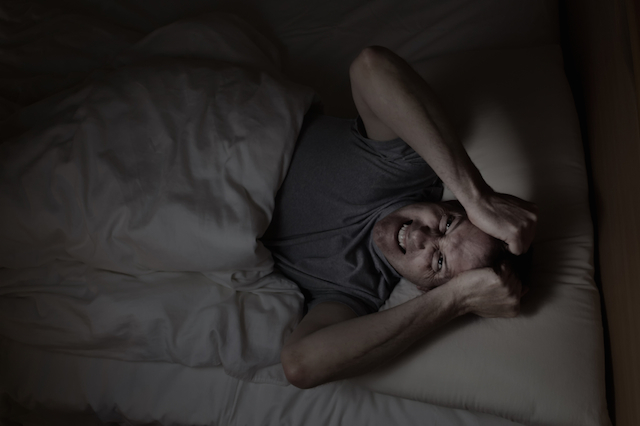Treatment Objectives
Insomnia Treatment
Insomnia Treatment
Insomnia to some is a plight of despair. Fueled by the mental calamities of a personal domain, insomnia by definition should be categorised under Pain, for under its spell, the suffering lives and breathes on its very own.
Insomnia usually will respond to simple changes that a person can make consciously. To have good sleep hygiene it doesn’t take a genius to figure out, that limiting food and beverages with stimulants like sugar and caffeine would be a smart move. Getting enough fresh air and exercise during the day can ultimately help, come bedtime alongside setting up your sleep environment to encourage calm and rest. Screens should be eliminated from all sleeping areas, lights dimmed, and comfort maximised.
Medication for the treatment of Insomnia
There are a number of medications that are prescribed to assist those suffering from insomnia.
- zolpidem (ambien)
- eszopiclone (lunesta)
- ramelteon (rozerem)
- zaleplon (sonata)
- doxepine (selenor)
- benzodiazepines are known to cause dependency, however can be prescribed as a short term fix. The most common prescribed for insomnia are either temazepam (restoril) or alprazolam(xanax)
- antidepressants such as mirtzapine (remeron) and trazodone (desyrel)
Typical side effects include:
- morning grogginess
- prolonged drowsiness throughout the day
- confusion
- forgetfulness
- dependency
- rebound insomnia
- drug interactions
With a condition like insomnia, it is a better treatment option to identify and treat the cause of the insomnia whilst minimising the symptoms. Typically, if the insomnia is caused by psychiatric disorders or a medical problem.
- Visiting a Sleep Specialist
- Visiting your psychiatrist to reevaluate currently prescribed medications or to discuss the anxiety or depression that may be causing you insomnia
- Dietary Restrictions
Medical Cannabis Treatment of Insomnia
The endocannabinoid system has broad influence over areas of the brain involved in sensations such as pain perception, movement, emotion, cognition, and sleep. Early research suggests that CBD consumption has the potential to improve sleep. The effect of CBD on alertness is biphasic. At low doses it has been shown to increase alertness, though at higher doses, patients report a very calming effect. In particular, it has the propensity to block rapid eye movement (REM) sleep.
In 1981, there was a Brazilian study that took place. 15 insomniacs were studied by researchers at the Escola Paulista de Medicina in Sao Paulo. The insomniacs were given a dose of CBD (ranging between 40mg and 160mg) placebo, or nitrazepam which is a hypnotic medication that relieves anxiety and insomnia. Those who were given the higher CBD dose reported significant increase in sleep, though the dream recall was minimal in comparison to those who had taken the placebo. The reduction in dream recall was hypothesised to be due to reduced REM sleep.
Insomnia Statistics in Australia
Survey’s of the Australian population show that 13%–33% of the adult population have consistent issues either getting to sleep or staying asleep. It has been found that around 50% of patients who suffer from depression have comorbid insomnia. Sleep disturbances coupled with depression are, the first and third most common psychological reasons for a patient to seek out medical advice.

What is Insomnia?
If you consistently have problems falling into a peaceful slumber, then you owe it to your body to address the causes and minimise the risk.
No matter how tired, those who suffer from insomnia will find the moment they set their head on the pillow, their brain tunes out sleep and tunes into anything and everything that is troubling them. Insomnia is the inability to fall asleep, stay asleep and acquire the necessary amount of sleep to wake up refreshed and clear headed. Insomnia is defined by the quality of ones sleep not entirely by the number of hours slept.
Insomnia can be helped , much of which can be done through lifestyle and dietary alterations.
Causes of Insomnia
Ok, so what is bothering you. I’m sure you know. After all… its keeping you up at night. Its on your mind. Emotional issues, account for half of all insomnia cases – this includes heartache, stress, anxiety, depression. Daytime habits also play a role in insomnia causes. Sleep routines should be consistent. This is where “routine” assigns a specific time each night. A time that your body melds with, expects, responds and provides – all the regenerative bliss that comes with it. So – what is stopping you from keeping to that desirable Sleep Routine? Take a personal inventory. Is it your living situation, work schedule, physical health or children? Try to identify all possible causes of your insomnia.
Questions to ask yourself- Insomnia Treatment starts with Identifying the Cause
What is your major cause of stress right now ?
Are you overwhelmed and broken?
Are you depressed or feeling hopeless ?
Do your inside thoughts indicate feelings of anxiety or worry?
Have you recently experienced something traumatic?
Are you taking any sleep medications?
Do you have any health problems that could possibly be interfering with your sleep?
Would you consider your sleep environment quiet and comfortable?
Are you spending some time out in sunlight during the day and in darkness at night?
Do you have a sleep routine ?
Symptoms of insomnia:
Experiencing difficulty falling asleep, even when tired
Frequent waking during the night
Experiencing difficulty falling back asleep when woken
Sleep exhaustion
Dependency on sleeping pills or alcohol to sleep
Daytime drowsiness
Mood swings
Clumsy, Disoriented Behaviour
Fragmented Communication
Forgetfulness
Lack of focus during the day
Clinical Studies / References:

